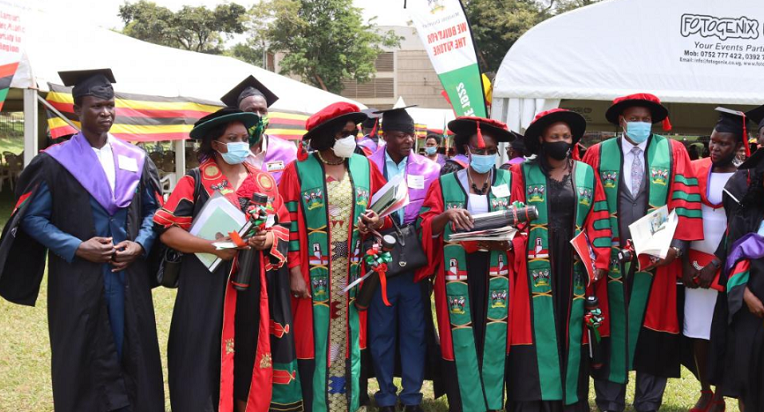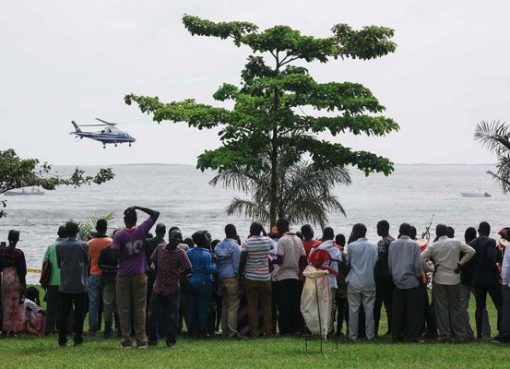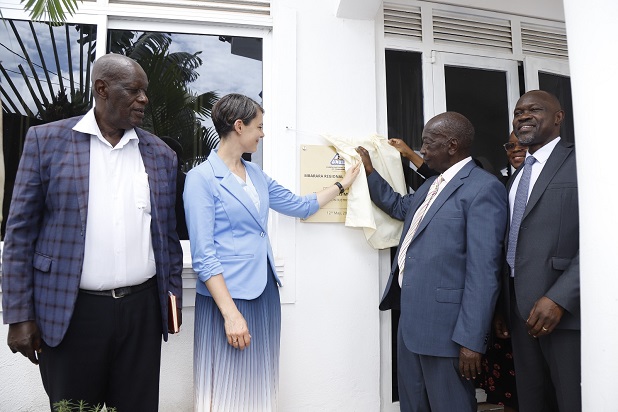The government is considering raising the retirement age for university academic staff, particularly targeting professors, as part of broader efforts to strengthen higher education. The proposal is aimed at retaining experienced academic professionals for a longer period, ensuring continuity in teaching, research, and mentorship.
This initiative is part of the Draft National Higher Education Policy prepared by the Ministry of Education and Sports. According to a brief on the draft policy, the proposal aims to raise the retirement age for professors from 60 to at least 70.
“Most professors in Uganda attain their title in their mid-50s, yet they are required to retire at 60 under Public Service Regulations. This means universities are not fully benefiting from their expertise before they leave,” the brief states.
Dr. Denis Mugimba, Spokesperson for the Ministry of Education, confirmed the proposal, highlighting that it addresses a longstanding concern in higher education. He noted that Uganda currently lacks sufficient academic staff at high levels to cover the growing number of university disciplines, and allowing capable faculty to retire prematurely could be detrimental.
Under current public service regulations, all academic staff, just like other public officers, retire at 60, though they can work for some additional years under post-retirement contracts. Professors may receive up to ten years of post-retirement service, divided into contracts of four, four, and two years, while associate professors can serve a total of five additional years.
The current practice has been criticized by affected public universities, which have lost staff to private institutions and international opportunities. Many higher education experts have described the simultaneous retirement of professors as a significant loss.
In response to the challenges posed by this policy, the Makerere University Council passed a resolution in June 2022 to allow professors and associate professors to serve until the ages of 80 and 75, respectively.
Professor Celestino Obua, an academic and university administrator, presents a contrasting view on the proposal to extend the retirement age for university staff. While many may see the extension as beneficial, Obua believes it could potentially harm the system. He argues that individuals appointed to senior positions in universities are often not as productive as they should be, and extending their retirement could exacerbate this issue.
Obua, who until recently served as the Vice Chancellor of Mbarara University, emphasized that the current practice of offering post-retirement contracts to those who reach 60 years of age works well. This approach allows universities to assess and retain individuals based on their performance, ensuring that only productive staff members continue under these contracts.
He suggested that instead of extending the retirement age, there is a need to streamline and improve the post-retirement contract system.
However, concerns have been raised, particularly from institutions like Makerere University, regarding the issuance of these contracts. There have been allegations that professors who are not in favor with university authorities are often denied post-retirement contracts, while others do not even apply, assuming they will be rejected. This selective process has caused frustration and raised questions about fairness in the system.
In addition to revising the retirement age, the Ministry is also exploring ways to enhance capacity development and support the initiative to have more academic staff for higher education in the different study areas.
Dr. Mugimba stated that the government aims to provide financial support for postgraduate training through bursaries and scholarships, fostering the development of a skilled pool of master’s and PhD holders necessary for effective higher education delivery.
Over the years, the government has not directly funded postgraduate training, except for a few projects that include such components and some bilateral arrangements with countries like the UK, Cuba, India, and China.
Individual universities have made small efforts to finance their staff’s studies or secure scholarships at different institutions to develop a more skilled workforce for teaching and advancing research agendas.
Although the National Council for Higher Education (NCHE) mandates that university staff hold PhDs, there is a noticeable shortage of qualified individuals available to teach at universities in the country. According to the NCHE report, there were a total of 1,987 PhD holders and 5,265 master’s degree holders reported in higher education institutions (HEIs) for the academic year 2020/21.
Analyzing this in relation to the student population, there is roughly one PhD holder for every 110 students, irrespective of their specialization. However, in reality, many of these PhD holders and higher positions like associate professor and professor are concentrated in a limited number of institutions. For instance, Kyambogo University has had only one professor—the vice chancellor—for several years.
“The overall ratio of PhD holders to the total student population in higher education is 135 students for every one PhD holder, which is quite alarming. This shortage of qualified staff affects our ability to generate new knowledge, mentor upcoming scholars, and drive the country’s economy,” the NCHE report noted.
The report also emphasized the need for a comprehensive staff development policy to build a sufficient pool of human capital necessary for driving the country’s economy to the desired levels.
The limited number of PHD holders raises significant concerns regarding the quality of education in higher institutions. This imbalance suggests that many students may not have adequate access to qualified faculty who can provide the mentorship and academic guidance necessary for their development.
Such a concentration of qualifications not only limits the quality of education available to students at institutions with fewer PhD holders but also hinders the potential for diverse academic perspectives and research initiatives. In an educational landscape where many students are eager to learn and engage with advanced topics, the lack of qualified faculty can lead to a stagnation in academic progress, innovation, and research output.
On this matter, Professor Celestino Obua expressed that the establishment of a government-funded postgraduate scholarship for academics is a welcome and long-overdue initiative. However, he emphasized that such scholarships should be open to competition, allowing both current academics and individuals aspiring to pursue academic careers in both private and public institutions to benefit.
To him, This would ensure fairness and inclusivity, encouraging talent from across the educational landscape.
In the same vein, the draft policy highlights that all higher education institutions must integrate and mandate pedagogical and andrological training for all individuals recruited as lecturers or instructors. Additionally, the government aims to establish a National Research Fund to support research and innovation activities for both students and staff across various higher education institutions. This move seeks to enhance teaching quality and foster a robust research culture in the academic sector.
-URN





